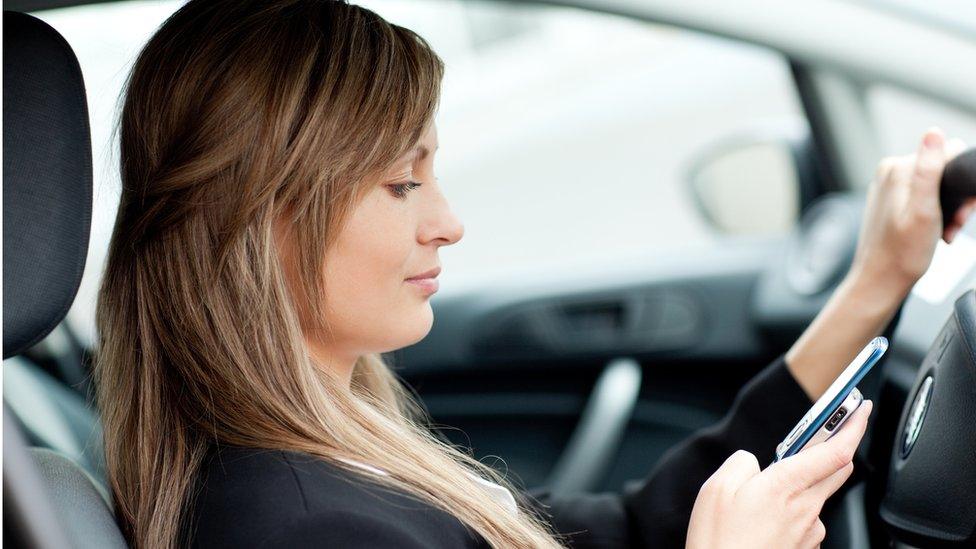Deadly distraction of driving while on your mobile
- Published
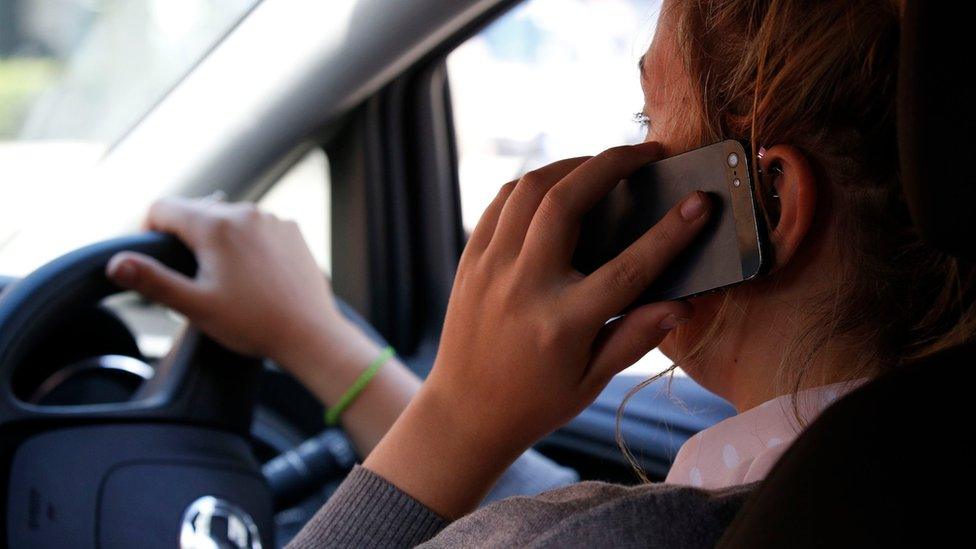
Thousands of drivers are being caught while distracted on the roads
Drivers know the dangers of using their mobile phone while on the road yet thousands continue to do so regardless.
Is such behaviour inevitable or can this potentially deadly habit be stopped?
New figures confirm that almost 10,000 drivers have been caught twice for being distracted while driving, including using a mobile phone, in the last four years.
Figures from a BBC Radio 5 live freedom of information request to the DVLA showed almost 240,000 drivers had been caught driving whilst distracted at least once, with 10,000 caught twice and 600 caught three times.
The dangers were highlighted last week when lorry driver Tomasz Kroker was jailed for 10 years after he killed a mother and three children while distracted on his smartphone.
The court heard that he had been so distracted he barely looked at the road for almost a kilometre.
Dash-cam footage shows Tomasz Kroker driving his lorry before the crash on the A34 in Berkshire
After the sentencing of Kroker, Kate Goldsmith, whose daughter Aimee died in the crash, made an impassioned plea for road users to learn from the case.
"We urge you to make a personal commitment to stop using mobile phones while driving and make our roads safer for everyone."
She is not alone in her suffering.
Paul Newman lost his sister Ellen in 2005 - she was walking home when she was knocked down by a driver using his mobile phone.
'Ban phones in cars'
He has been campaigning since her death to get phones banned from cars altogether and is calling on the government to make the change.
"It is worse than ever," he said. "It's an epidemic. It is vital the government take it more seriously.
"That court case [Tomasz Kroker] brought it all up for me again. That lovely family. Imagine if it was your family.
"Increasing the points and fines won't make a difference. Even after this horrible case, people are still out there on motorways every day using their phones. We feel the only answer is banning phones in cars."
A Department for Transport spokesman said: "We recognise that people driving whilst using mobile phones is a problem and we are looking at introducing tougher penalties."

What is the law?
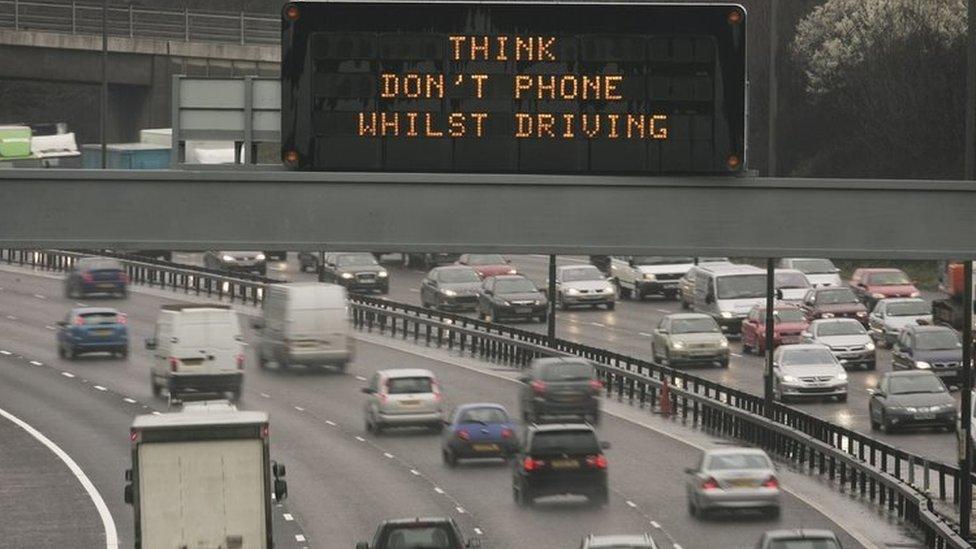
Breaking the law can lead to three points on your licence and a fine
It is illegal to ride a motorcycle or drive using hand-held phones or similar devices
The rules are the same if you are stopped at traffic lights or queuing in traffic
It is also illegal to use a hand-held phone or similar device when supervising a learner driver or rider
You can get an automatic fixed penalty notice if you are caught, with three penalty points on your licence and a fine of £100
Your case could also go to court, you could be disqualified from driving or riding and get a maximum fine of £1,000
SOURCE: HOME OFFICE

'Fear of missing out'
So why do people feel the need to use their phones so frequently, even knowing the dangers involved?
Dr Mark Griffiths, professor of behavioural addiction at Nottingham Trent University, said being addicted to mobile phones is rare, but people are dependent on them for their working and personal lives.
"Many people that use their smartphones constantly are not addicted but they do experience FOMO (fear of missing out)," he said.
"Such individuals will therefore engage in smartphone use in almost any situation."
He added: "Driving is one of many activities that some individuals will do simultaneously with using smartphones but unlike most other activities, the consequences can be dangerous and life-threatening if the driver does not have full concentration on the road around them."

Law in other countries
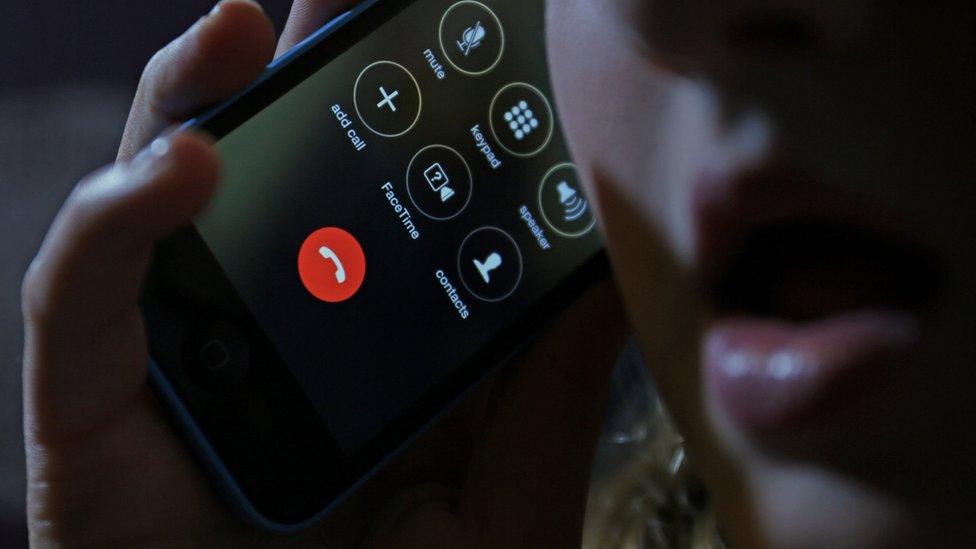
Only six states in the US have bans on driving with mobile phones
Using a mobile phone while driving is widely banned around the world but the US has a different approach.
Only six states have brought in total bans, according to Cellular News, external, with another 18 having "partial bans" - normally focused on teenage drivers and bus drivers. As in the UK, offenders tend to be dealt with by a fixed fine.
The Indian state of Andhra Pradesh can impose prison sentences for breaking the ban.
In the Netherlands, you can face a fine of up to 600 euros or two weeks in jail.
In the Irish Republic you face a three-month prison sentence if you are caught three times.

At the moment, the automatic fixed penalty notice for being caught on your mobile phone is three points on your licence and a £100 fine.
The Department for Transport last month pledged that it would be "toughening up" the law, with higher fines and more points, promising an announcement "shortly."
Raj Chada, a partner at Hodge Jones and Allen solicitors, is in favour of the law increasing the penalty point punishment but he argues that there is a bigger challenge.
"The reality is using a mobile phone while driving is an easy thing to do.
"People feel it is the same as switching on your radio when driving.
'Changing a culture'
"And people feel there is a scale. Someone sending a text is clearly not concentrating on the road, but some making a quick call in a traffic jam will not feel as bad.
"It is like drink driving. It's more about changing a culture to feel that it is clearly unacceptable, but we are a long way from that."
Whatever the law, it is the personal tragedy that remains the same.
On the steps of Reading Crown Court, Kate Goldsmith said: "The 10-year sentence will not ease our pain and suffering, nor do we believe it will send a strong enough message to those who lack the self-restraint to not use a mobile phone when driving."
- Published3 November 2016
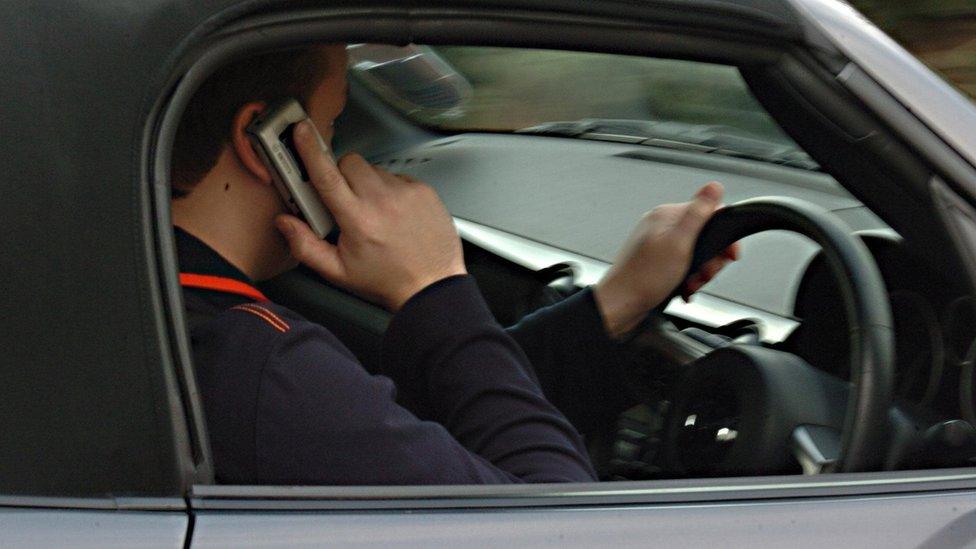
- Published28 October 2016
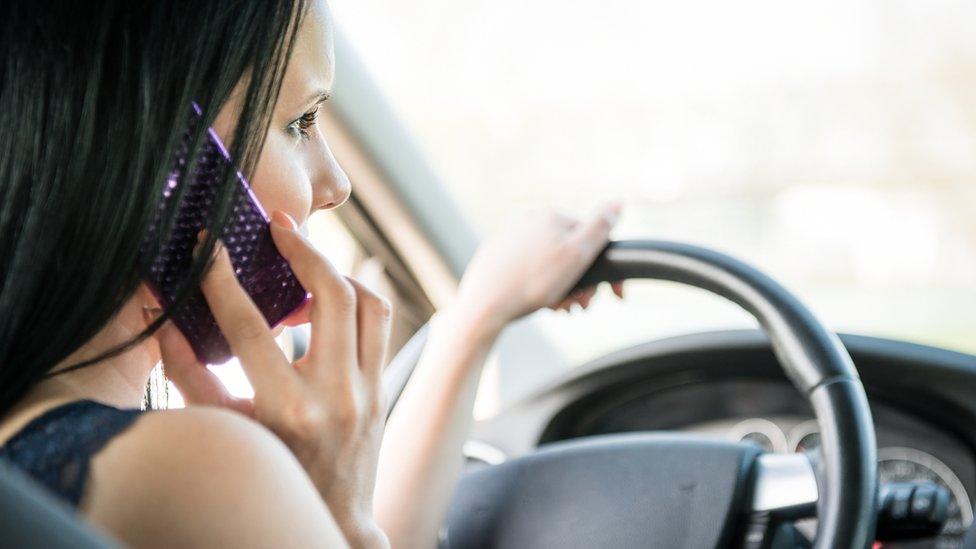
- Published17 September 2016
